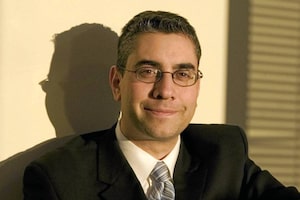Many individuals, companies and charities are not getting the interest on their cash that they should.
People often say it is about doing the little things right that make the difference in the long run. If you aren't making at least 1.75 per cent on your "extra" cash, you aren't doing the little things right.
Companies and charities are often the worst offenders. If you are responsible for an organization's money, are you getting 1.55 per cent on your extra cash? If not, you are leaving money on the table.
People and organizations that consistently take advantage of free money over time, tend to come out ahead. They can't control the stock market or housing prices or consumer demand, but they can be sure not to get nothing on their cash. Other examples of free money would be writing off everything that you legally can to reduce taxes, or making full use of programs like an RESP, RRSP or RDSP when they make sense.
When it comes to cash, it is shocking to me what people earn on cash, as this quick survey I ran on March 1 rates for individuals and corporations shows. There must be tens of billions of dollars that are sitting in various accounts earning 0 per cent or close to it. The rate is somewhat understandable if the funds are "active" money, that is, money going in and out of the account on a regular basis. It is the "inactive" money that needs your attention.
Individuals
Today there are many high-interest savings accounts available with rates as high as 2.1 per cent. The only caveat is that many of those with the highest rates are with very small institutions. Be sure that you are comfortable with the organization and their government-backed insurance (circumstances in each province are different) before committing funds. Larger organizations pay rates as high as 1.75 per cent. This is what we are comfortable providing to our clients. The best of the Big Five (if you dig for the unique offering) is 1.25 per cent at BMO.
Corporations
Quite frankly, companies get taken advantage of when it comes to their cash. I am not sure why this is the case, but it is happening. Some very large companies are earning 0.75 per cent on their mid-term or long-term cash. Usually it is 0 per cent on short-term cash. The 90-day Government of Canada t-bill rate is 0.94 per cent. Arguably, that is a good rate for corporations. However, it's possible to get more; we have been able help clients get a rate of 1.55 per cent.
If you have your hand on the till of a corporation, it all comes down to whether you are okay turning away free cash. Some corporations are concerned about upsetting their bankers, by moving some cash away from their bank. I have never understood this. The bank makes money on its lending to you. The bank makes money on its deposits from you. You should be upset if your bank is paying you so little on your cash.
This applies to large companies, small companies, condo corporations and everyone in between.
Nobody needs to change their core financial institution to be smarter about their cash. They simply need to look at the cash beyond their monthly needs, and find a better rate on it. This cash can be accessible, daily-interest funds that can be linked electronically to their regular corporate bank account, with funds moved in either direction within two business days.
Bill Ritchie is president and chief executive officer of GICdirect.com. His firm helps companies and individuals to find better rates on GICs and other savings products. "Probably 90 per cent of my clients are individuals. Corporations are maybe 10 per cent," Mr. Ritchie says. "But corporations are really not getting good rates on their cash in most cases. Many people aren't aware that organizations like ours are out there."
Charities and not-for-profits
You are not excluded from the free-money camp. In fact, considering that most of your money comes from donors, you have an even greater responsibility to squeeze every dollar you can from the free-money trough.
Most financial institutions treat you the same as other corporations. As a result, you are receiving the same low rates, but you have the ability to earn much more. 1.55 per cent is a current rate that is available, but even to find improvements by negotiating with your current provider is a valuable service to your organization and to your donors and supporters.
The bottom line is that if you are an individual with $50,000, and you can earn 1.75 per cent for a year instead of 0.25 per cent, you will have an extra $750 in your pocket at the end of the year. This is one of those little things that make a difference over time.
If you are a corporation that has $2-million earning 0.25 per cent and you could earn 1.55 per cent for a year, you are giving up $26,000 a year. Much better in your pocket than your bank.
Ted Rechtshaffen is president and CEO of TriDelta Financial Partners, a firm that provides independent financial planning advice. He has an MBA from the Schulich School of Business and is a certified financial planner. He was vice-president of business strategy at a major Canadian brokerage firm.
Follow Ted on his blog at The Canadian Financial Planner.
 Ted Rechtshaffen
Ted Rechtshaffen